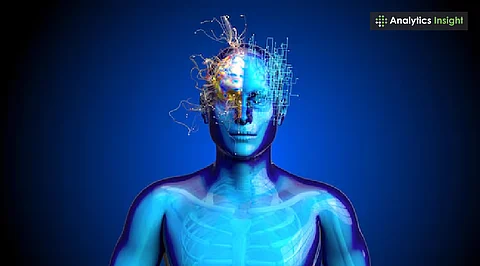

Super intelligence could revolutionize medicine, solve environmental challenges, and enhance productivity, transforming daily human life on a global scale.
Advanced AI raises ethical questions, making it essential to implement careful governance, safety protocols, and alignment with human values to prevent existential risks.
Humanity must proactively prepare for super intelligence, balancing technological advancement with caution, insight, and collaboration to safely unlock its full potential.
Artificial Intelligence (AI) has come a long way in the past decade. From simple chatbots to advanced machine learning systems, AI is reshaping industries, education, healthcare, and even entertainment. Yet, as impressive as today’s AI is, it’s still a step away from what experts call ‘super intelligence.’
Super intelligence denotes an extreme level of intelligence far beyond human abilities. It is not about doing things faster or storing more information. It is about understanding, reasoning, and problem-solving in ways that simply cannot be done by humans.
Think of an entity that will learn everything and predict with absolute certainty the outcome of events, and will invent technologies that we as of now do not understand. That would be life after AI, which many researchers, futurists, and technologists are curious about.
Also Read: How Artificial Intelligence is Fighting Deadly Infections with New Antibiotics?
Much excitement accompanies the idea of super intelligence, with fear also being thrown into the mix. It may open a whole new scope for medicine, finding cures for diseases whose cure is yet unknown.
It could then engineer complex solutions to environmental problems like climate change and design smarter energy systems. It could have an impact on everyday life, imparting greater security to cities, more efficient transportation, and higher productivity at an individual level.
On the other hand, super intelligence does raise some fundamental ethical questions. If a machine overtakes man as the most intelligent entity, how can it be controlled? How can we be sure it conforms to human values?
The dangers do not just involve machines taking our jobs or making wrong decisions; these bad decisions can be made at a scale that can affect the whole of humanity. Philosophers and scientists such as Nick Bostrom and Elon Musk point out that super intelligence, if conceived without due safeguards, could pose existential risks.
Understanding super intelligence also requires understanding the limitations of AI. At present, while powerful, specific Artificial Intelligence systems are narrow in scope. They excel at one task, such as chess or image recognition, but struggle with functions outside their training. Achieving General AI would overcome these limitations, creating systems capable of learning, adapting, and performing across multiple domains, shaping the AI future.
Super intelligence, in contrast, would be general-purpose, capable of learning across domains, adapting to new situations, and even innovating independently. It would be more than a tool; it could be a partner - or competitor - in shaping the future.
The path to super intelligence involves advances in multiple fields. Quantum computing, for example, could exponentially increase processing power. Neural network research continues to evolve, allowing machines to mimic aspects of human learning more closely. Brain-computer interfaces might one day merge human cognition with AI, creating a hybrid intelligence that pushes the boundaries of thought.
Also Read: Google Translate Challenges Duolingo with Gemini AI Upgrade
Despite these possibilities, the timeline for achieving super intelligence is uncertain. Some experts predict it could happen within decades, while others believe it may take a century or more. What is clear is that the conversation about the role of Artificial Intelligence in human society must begin now.
Governments, scientists, and organizations need to develop ethical frameworks, safety protocols, and governance systems to ensure that super intelligence benefits humanity rather than threatens it.
Life beyond AI is a colossal metamorphosis in human realization,- creativity, and decision-making. Super intelligence poses the question of our role in the world and concerns about the future. Super intelligence could solve some of humanity's most pressing problems, but only if approached with caution, wisdom, and foresight.
Ultimately, embarking with super intelligence is more about human insight than about machines. If prepared well, we might see a future where Artificial Intelligence is beyond just a tool but rather a partner in unlocking the next level of human potential.
Q1. What is super intelligence?
Super intelligence refers to an advanced form of artificial intelligence that surpasses human cognitive abilities. It can learn, reason, and solve problems independently across multiple domains, potentially transforming industries, society, and daily life in ways we cannot yet fully predict.
Q2. How is AI different from super intelligence?
Current AI systems are narrow, excelling in specific tasks like image recognition or language processing. Super intelligence, however, is general-purpose, capable of learning across domains, adapting to new situations, and innovating independently, far exceeding human cognitive capacity.
Q3. What are the potential benefits of super intelligence?
Super intelligence could revolutionize medicine, discover cures for diseases, address climate change, enhance productivity, and improve daily life. It offers unprecedented problem-solving capabilities, making cities safer, energy systems smarter, and human creativity and innovation more impactful worldwide.
Q4. What ethical concerns exist with super intelligence?
Super intelligence raises ethical questions about control, alignment with human values, and large-scale decision-making. Without proper governance and safeguards, advanced AI could pose existential risks, affect jobs, or make decisions with far-reaching consequences for humanity.
Q5. How can society prepare for super intelligence?
Society must establish ethical frameworks, safety protocols, and governance systems. Collaboration among governments, researchers, and organizations is essential to ensure AI development benefits humanity, balancing innovation with caution, foresight, and responsible decision-making for a secure technological future.
